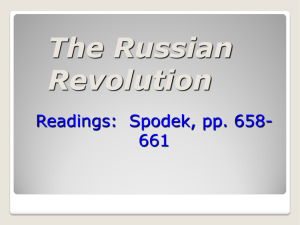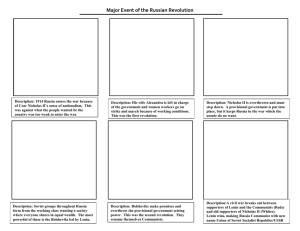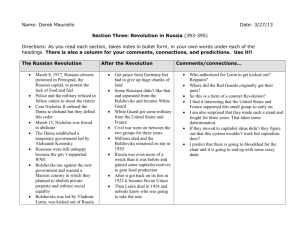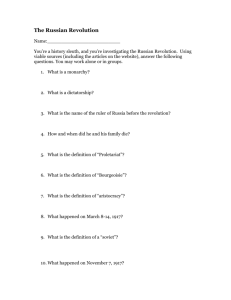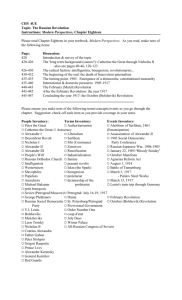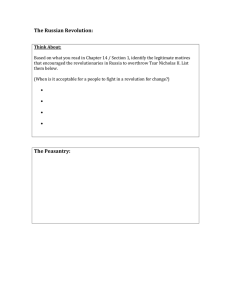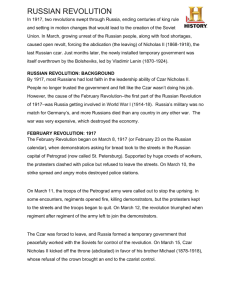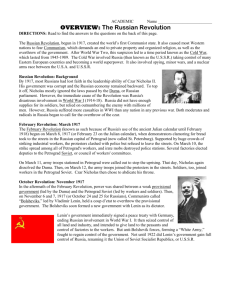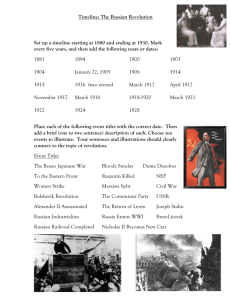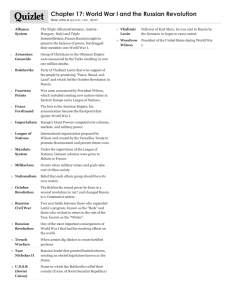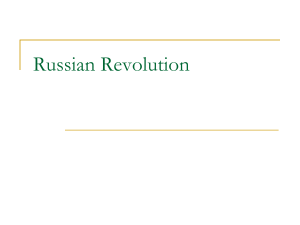The Russian Revolution
advertisement
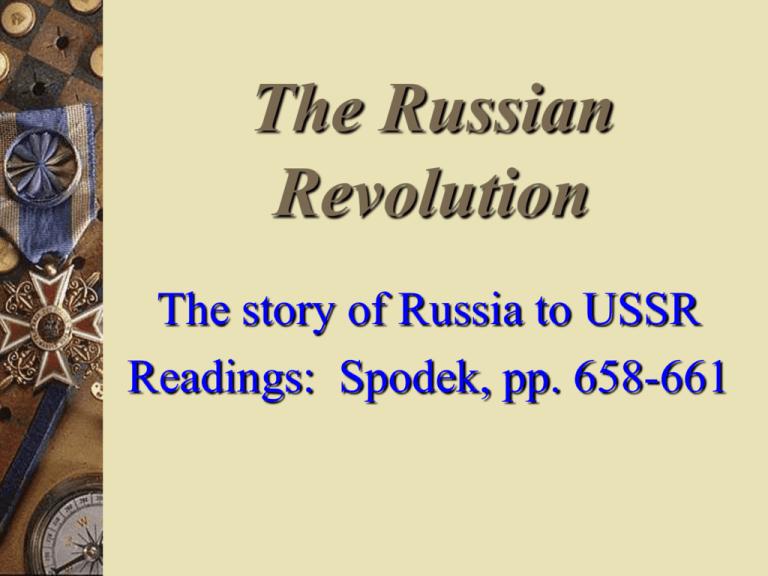
The Russian Revolution The story of Russia to USSR Readings: Spodek, pp. 658-661 Nicholas I (1825-1855) Hated Industrial Revolution and French Revolution Wanted to make world safe for autocracy Fought against progress in Russia and Europe Alexander II (1855-1881) Son of Nicholas I. He came to the throne during the Crimean War Emancipated the serfs in 1861 Alexander III (1881-1894) Increased the repressive powers of the police Limited the power of the local assemblies Pograms against anyone who was not Russian Nicholas II (1894-1917) Russo-Japanese War (19041905) Imperialistic Conflict over Korea and Manchuria Russia trying to ward off rebellion Bloody Sunday-January 22, 1905 Began in St Petersburg Disaster of Russo-Japanese War revealed corruption and incompetence of czar Created Duma, limited economic reform World War I/ Rasputin Had control over the Tsar Nicholas II and the Tsarina Was murdered in December 1916 World War I was a disaster. The Revolutions of 1917 February Revolution (March 8, 1917) Czar Nicholas Abdicates How Do Bolsheviks Get Power? Lenin arrives in Petrograd (St. Petersburg)—April 16. 1917 Lenin calls for armed insurrection —Oct. 16, 1917 (Russian Calendar) October Revolution begins, October 24, 1917 (Russian Calendar), November 6, 1917 (Western European Calendar) Lenin, Trotsky and Stalin Treaty of Brest Litovsk— March 3, 1918 Lost 32% of the land Lost Estonia, Latvia, Lithuania Much of the Ukraine Much of Belarussia Civil War and Lenin’s Rule From 19181921 Reds Whites Creation of USSR Nationalization of all land and banks New Economic Plan Lenin dies of a stroke Power Struggle after Lenin’s Death and Stalin’s Rule Forced collectivization “The Great Famine” “The Great Terror” Purges Gulag Contemporary Problems Cold War with US from 1945-1991 Mikhail Gorbachev’s Glasnost allowed Democracy to Emerge Perestroika—socialism not possible in capitalist world Resigns December 25, 1991 End of Soviet Union and the end of the Cold War Boris Yeltsin Problems: – Economy was a – – – – mess Workers not paid National Debt IMF and World Bank Money to Cronies Politics a Mess Today in Russia and the Former Soviet Union A weak Boris Yeltsin names Vladimir Putin, former KGB agent, Premier then President Communists Still Have Some Power: Many want stability of Old System back Today’s Russia (continued) Ethnic groups want autonomy or Independence Putin has destroyed Chechnya Reports of rapes and pillage Nationalists want powerful Soviet Union Questions still needing answers Winners and Losers Winners Losers – Communist Party – Poorest peasants – Some Workers – Traditional Russian upper – Massive Literacy Project— classes – Many of those in traditional Russian middle classes – Those killed or imprisoned because of oppressive regime – Jews, Muslims, other ethnic minorities all those who learn to read and write – Vastly improved health care—all those who lived longer and healthier – Women
